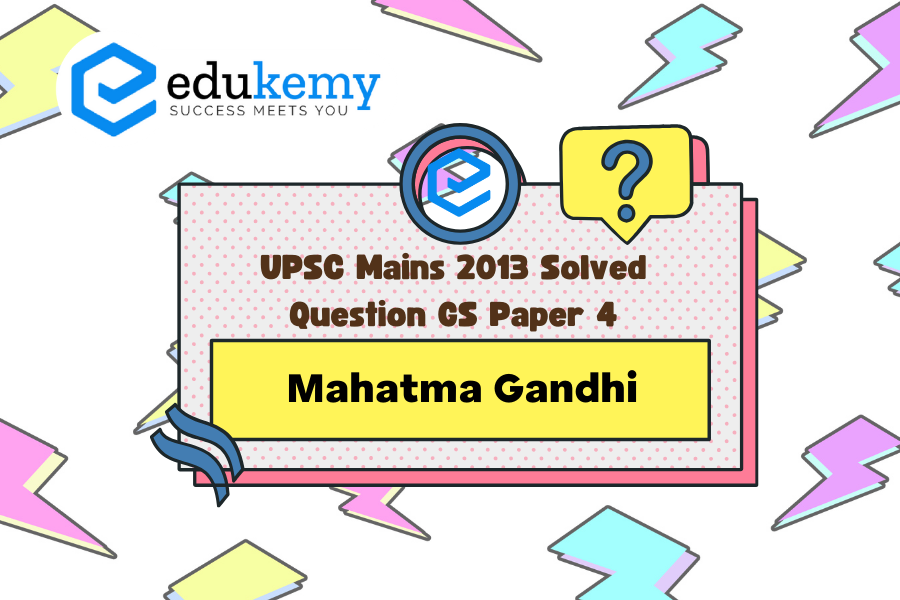Mahatma Gandhi’s profound statement, “There is enough on this earth for everyone’s need but for no one’s greed,” encapsulates the essence of sustainable living and equitable distribution of resources. In a world where consumption often outpaces the planet’s capacity to replenish itself, Gandhi’s words remind us of the importance of moderation and mindful stewardship of our natural resources. By emphasizing the distinction between need and greed, Gandhi highlights the ethical imperative to prioritize all beings’ well-being and preserve our environment over insatiable desires for excess. This philosophy calls for a shift in mindset towards a more balanced and equitable approach to resource utilization, where cooperation and compassion supersede exploitation and accumulation. Gandhi’s timeless wisdom continues to resonate, urging us to strive for a world where everyone’s basic needs are met without compromising the ability of future generations to thrive.
Tag: Contributions of moral thinkers and philosophers from India and world.
Contents
Decoding the Question:
- In the Introduction, try to give the context behind the given quotes/statements.
- In Body, elaborate more on the given quotes and its relevance in the contemporary era.
- In Conclusion, try to provide suggestions and conclude with the above points.
Answers:
“There is enough on this earth for every one’s need but for no one’s greed.” This most often quoted phrase by Mahatma Gandhi depicts his concern for nature and environment. Much before the convening of any of the international conferences like the Stockholm Conference of 1972 or the Rio Earth Summit of 1992 and almost a hundred years ago, Mahatma Gandhi had voiced his concern for the environment.
The concern was evident in his speeches, writings and his messages to the workers.
Concepts of ‘Need’ and ‘Greed’:
- Mahatma Gandhi’s approach to nature revolves around the concepts of ‘need’ and ‘greed’ therefore, the bounties of nature can be used only according to the needs.
- Relevance in today’s context: concept of need and greed leads to grassroots efforts based on meeting the needs of all people on a sustainable basis.
- In effort to reconcile the objectives of peace, environment protection and justice based on satisfaction of needs of all people, the concept of Need and greed can be very useful, particularly as these are supported by his impressive record of living a life based on these principles and leading several struggles and campaigns based on these.
- Mahatma Gandhi was very much concerned about the sharing of resources by all. As he said that it is the fundamental law of nature, without exception that nature produces enough for our wants from day-to-long, and if only everybody took enough for himself and nothing more, there would be no pauperism in this world.
- He forewarned humanity that, ‘a time is coming when those, who are in the mad rush today of multiplying their wants, vainly thinking that they add to the real substance, real knowledge of the world will retrace their steps and repent for their deeds.
- Relevance in today’s context: In today’s scenario, the ‘must-have, must-buy’ economy is eating into the planet’s resources like never before, something Mahatma Gandhi foresaw three-quarters of a century ago. He also warned of the dangers of other countries taking to Western industrialism.
- Mahatma Gandhi has been acknowledged as the ‘patron saint’ of the Indian environmental movement. Environmental activists have relied heavily on Gandhian thought of non-violent protest or satyagraha and have drawn heavily on Gandhian philosophy against heavy industry which may displace or crush the poor and downtrodden.
- The Chipko movement (Chandi Prasad Bhatt and Sunder Lal Bahuguna), Baba Amte and Medha Patkar (Narmada Bachao Andolan) all derived inspiration from Gandhi.
- Mahatma Gandhi’s views on the environment consist of moral, spiritual and non-violent dimensions. India’s approach on climate change mitigation is guided by Gandhian principles and provisions of UNFCCC and Paris Agreement, particularly the principles of Equity and Common but Differentiated Responsibilities and Respective Capability (CBDR-RC).
The Gandhian philosophy and approach give plenty of opportunities to overcome the environmental crisis. A frugal living and Spartan life may not be feasible for the present generation but a consideration with rationality and sensibility towards translating these ideas into practice would help in saving the planet Earth from the impending disasters. Gandhi belonged to that school of thought where remedy was preferred to cure. He worked out a worthwhile alternative for man’s peaceful, purposeful and happy existence. This is what made him an environmentalist with a difference.
In case you still have your doubts, contact us on 9811333901.
For UPSC Prelims Resources, Click here
For Daily Updates and Study Material:
Join our Telegram Channel – Edukemy for IAS
- 1. Learn through Videos – here
- 2. Be Exam Ready by Practicing Daily MCQs – here
- 3. Daily Newsletter – Get all your Current Affairs Covered – here
- 4. Mains Answer Writing Practice – here


